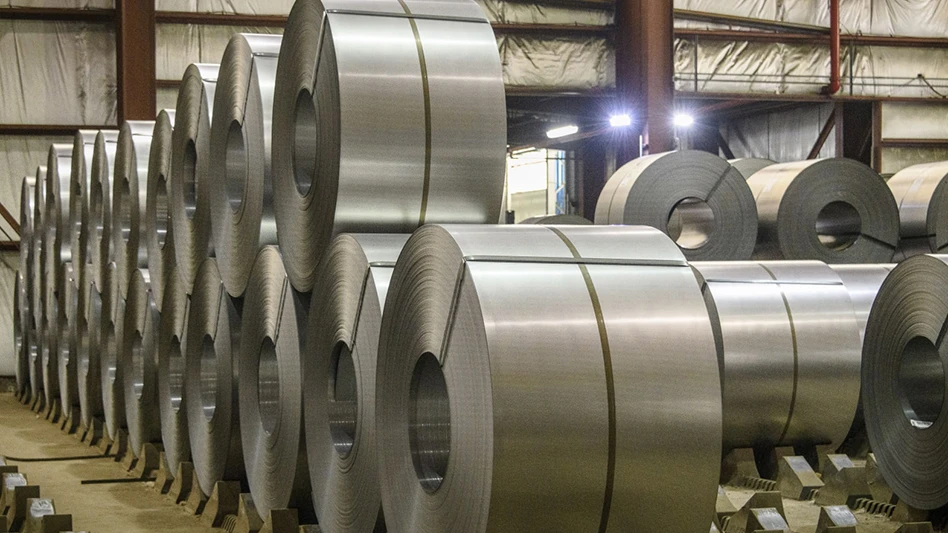At a recent meeting of the Federal Electronics Stewardship Forum held in Arlington, Va., Oct. 18-19, 2001 representatives of the U.S. EPA and a host of federal government agencies indicated that disposal of electronic equipment is an issue being given high priority status. Work is underway to develop a program to recycle millions of tons of government electronics and to create a framework for a nationwide electronics recycling system.
Many U.S. companies have become complacent that the Federal government has not taken a strong position on enforcing hazardous waste regulations as they relate to electronics disposal. Part of the reason for this is the government’s desire to encourage recycling without burdening generators with hazardous waste regulations.
The Federal government is now stepping up with new CRT regulations being proposed for this coming spring. Leaded glass in cathode ray tubes, batteries, and a host of heavy metals present in most electronics are subject to hazardous waste regulations under the Resource Conservation and Recovery Act unless specifically exempted by a state regulation such as Universal Waste. In addition to the new regulations, the government is addressing environmental issues that relate to disposal and recycling of their own electronic waste.
Consider the following comments made at the meeting:
“We do know that certain electronic components have toxic characteristics,” said Mike Shapiro, Office of Solid Waste and Emergency Response, U.S. EPA.
“Beginning next year, we will be educating the private sector about hazardous components in electronics,” said Clare Lindsay, Office of Solid Waste, U.S. EPA.
“We can’t forget about disposal when we donate equipment,” said Daryl White, U.S. Department of the Interior.
“Electronics have replaced batteries as the largest source of heavy metals in our waste stream,” said Mike Shapiro, U.S. EPA
“We are working to establish national and international standards for end of life practices with a certification process,” said Bob Tonetti, Office of Solid Waste, U.S. EPA.
“We are submitting a proposal to the Office of Management and Budget to streamline hazardous waste regulations as they relate to CRT disposal,” said Mike Shapiro, U.S. EPA.
“We realize that if we donate equipment we are not transferring end of life responsibility. We are working toward taking all donated equipment back at end of life,” said Paul Grand, US Department of Defense.
Now is the time to for corporations to evaluate current electronic disposition methods by considering the following questions:
Does our company really know how end of life equipment is being managed?
Have vendors that manage this been audited for assurance that they are doing what they say they are doing?
Do recipients of donated equipment have an environmentally secure means of recycling our assets at end of life?
Have serial number inventories been recorded for equipment sent out for resale and recycling to document that these items have been managed properly?
Have we audited records tracking shipment and destruction of hazardous components in non-salable equipment?
Companies unsure of any of the answers to the above questions should begin careful evaluation of current practices and take action to put comprehensive programs in place.
For information on current state regulations, contact your state environmental agency. For information on electronics recyclers certified by the International Association of Electronics Recyclers visit www.iaer.org. Not all companies listed have been certified. Lauren Roman
The author is vice president of United Recycling Industries, Inc., West Chicago, IL. She has over 20 years of experience in solid and hazardous waste management and has been providing corporations with electronic asset management recovery solutions since 1995. She can be reached at 973-584-8859, Lroman@unitedrecycling.com.Latest from Recycling Today
- Magnomer joins Canada Plastics Pact
- Electra names new CFO
- WM of Pennsylvania awarded RNG vehicle funding
- Nucor receives West Virginia funding assist
- Ferrous market ends 2024 in familiar rut
- Aqua Metals secures $1.5M loan, reports operational strides
- AF&PA urges veto of NY bill
- Aluminum Association includes recycling among 2025 policy priorities





